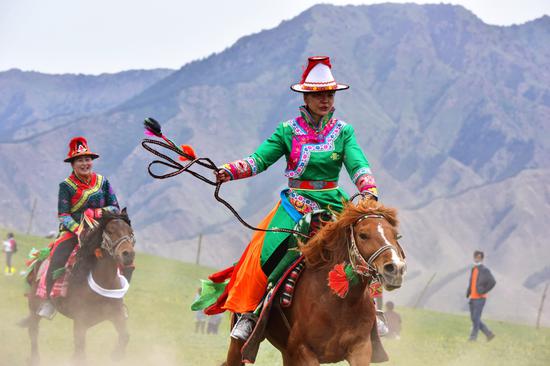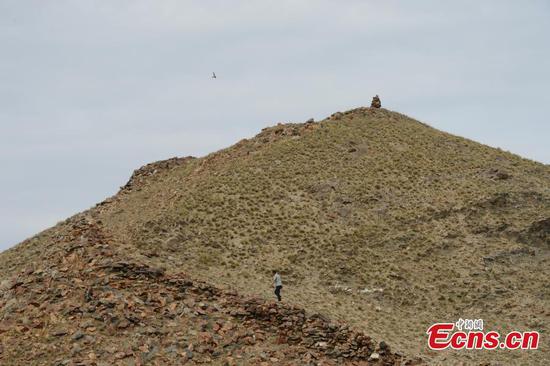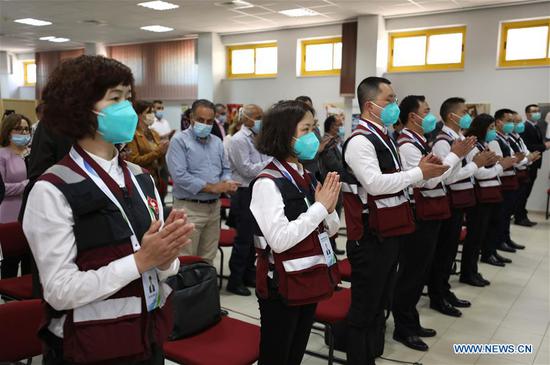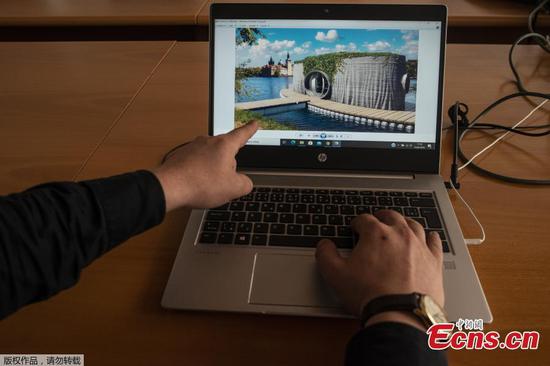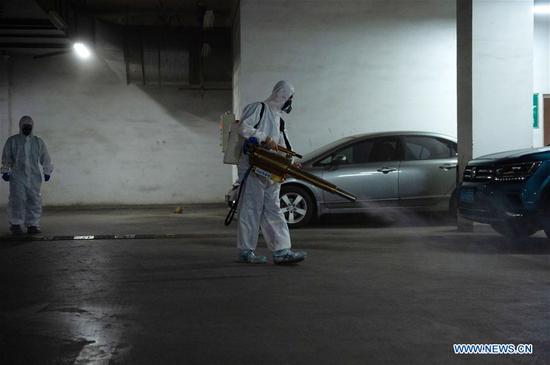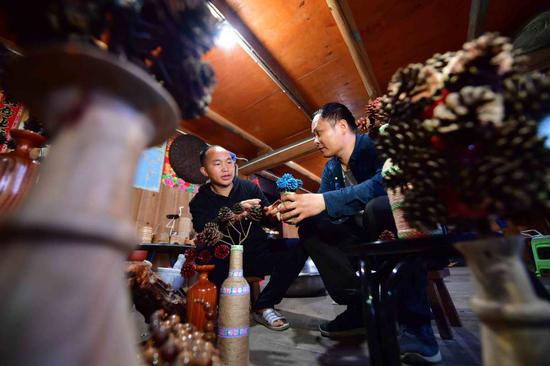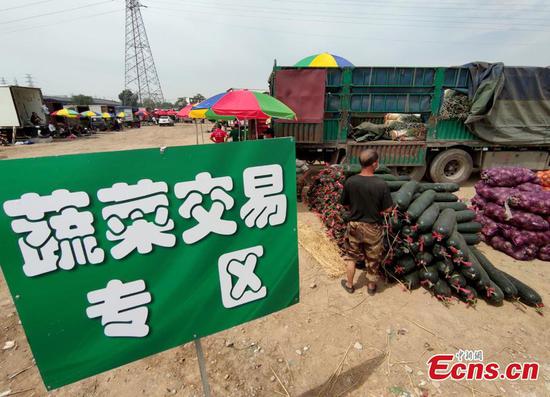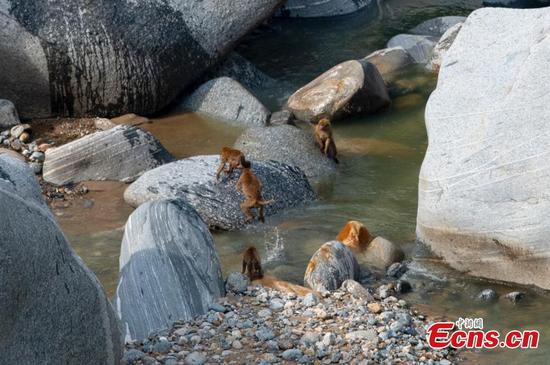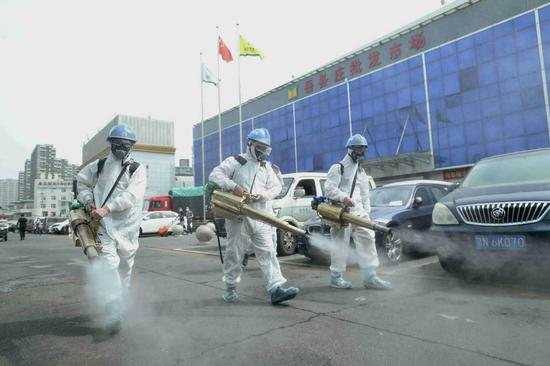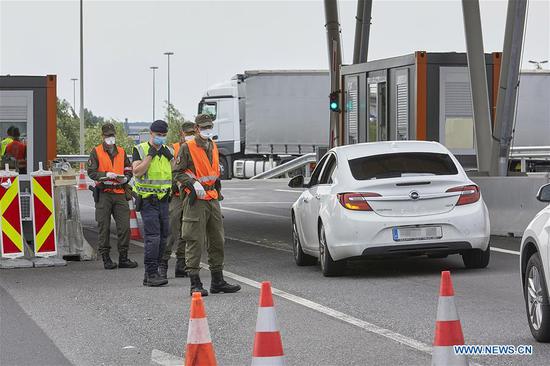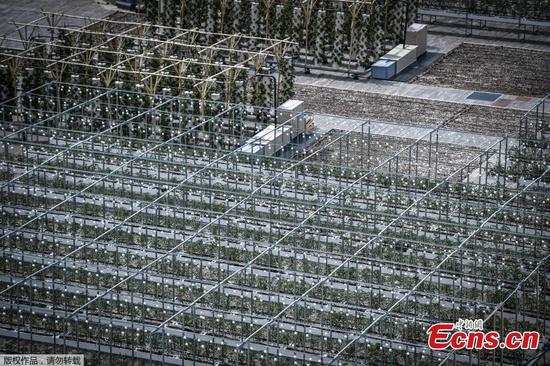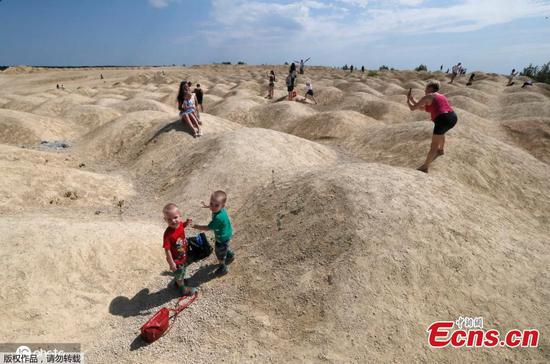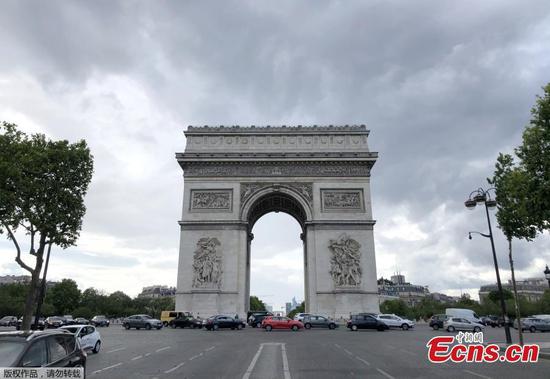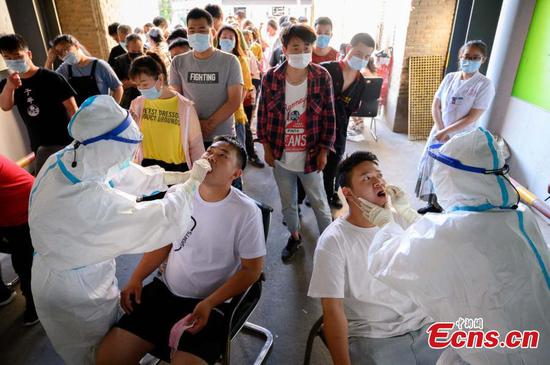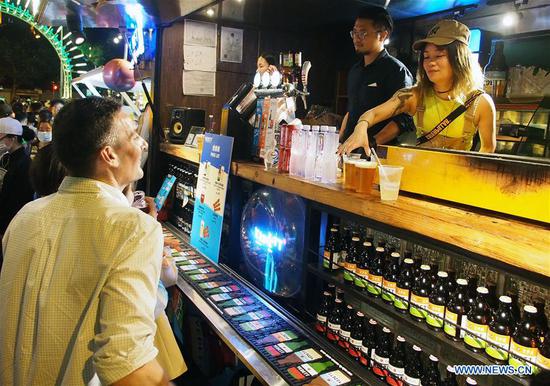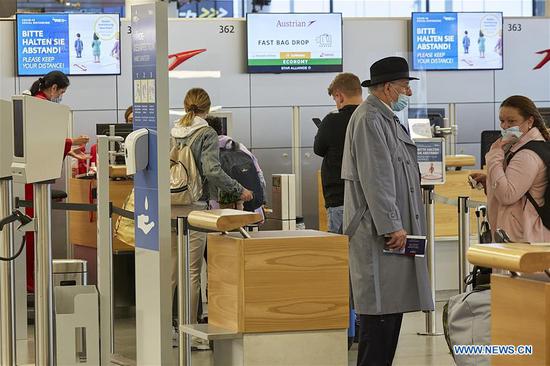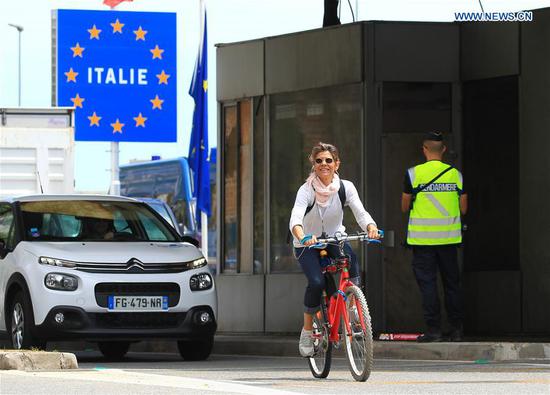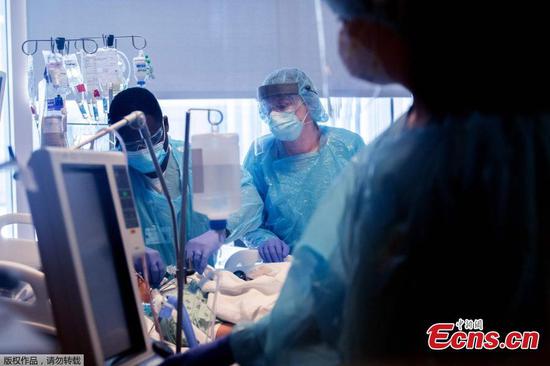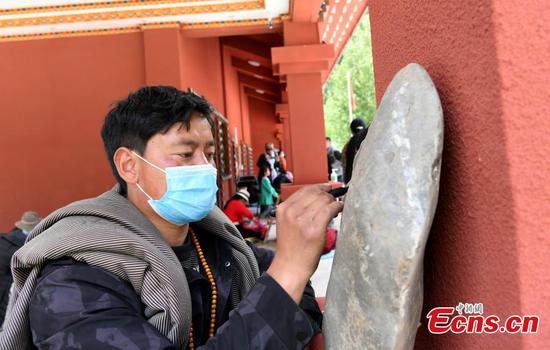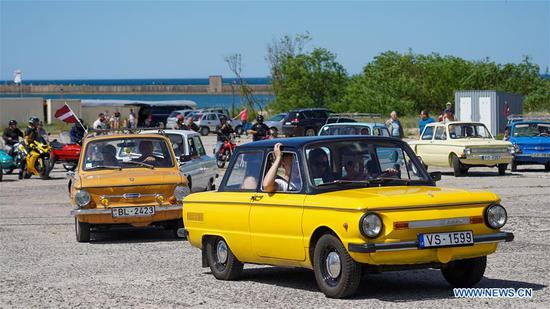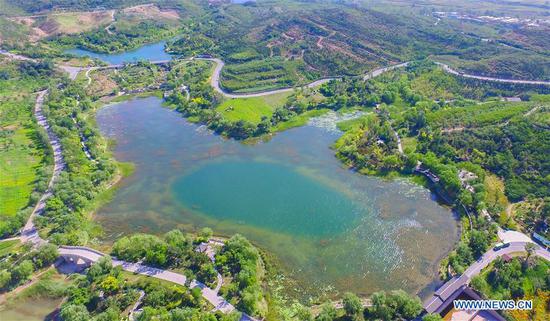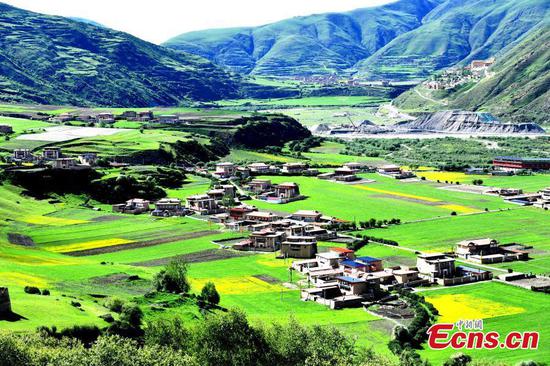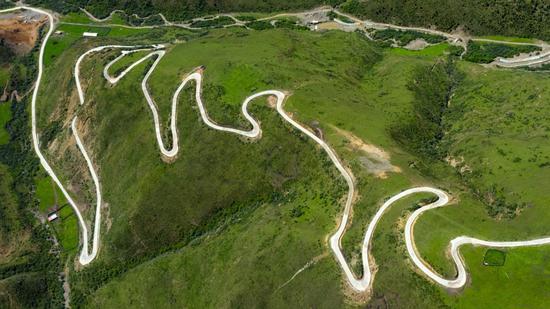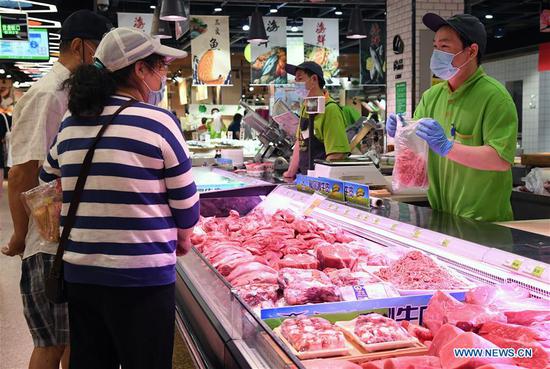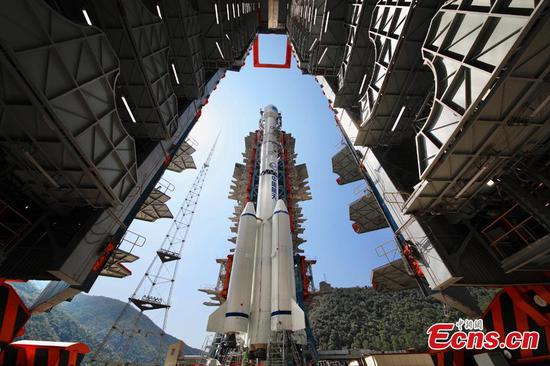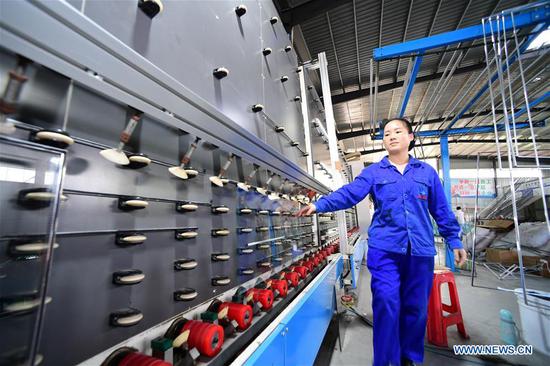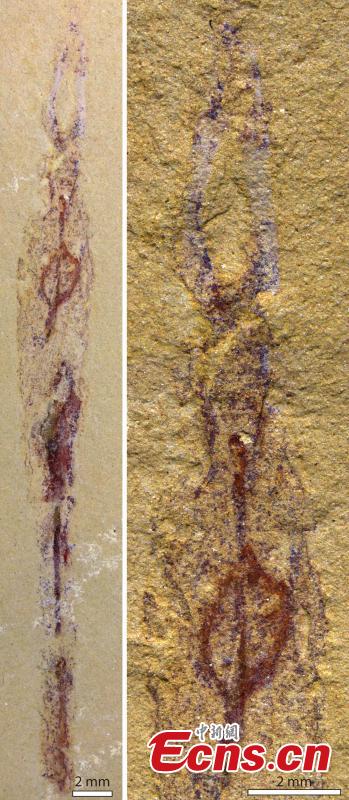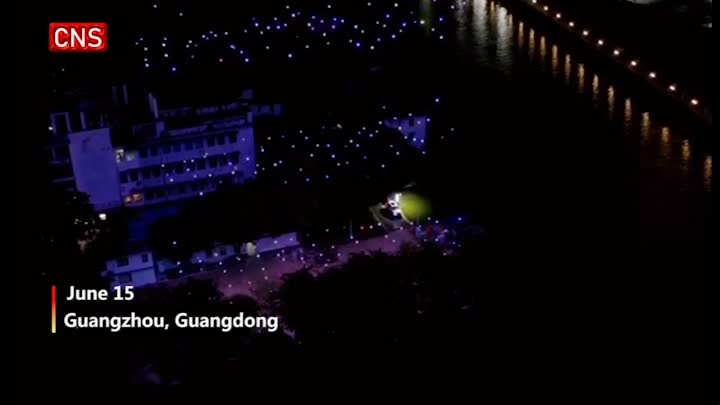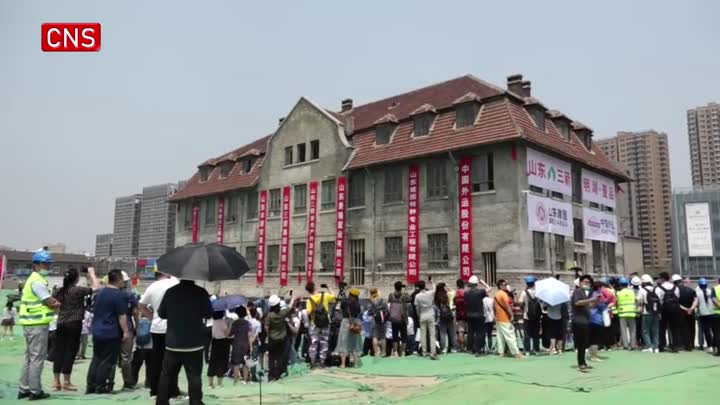South Korea responded on Wednesday to the Democratic People's Republic of Korea (DPRK)'s refusal of Seoul's offer to send special envoy and the DPRK army's military action plans.
Yoon Do-han, senior public communication secretary for South Korean President Moon Jae-in, said in a statement that the DPRK unilaterally disclosed South Korea's closed-door proposal to dispatch special envoy to the DPRK in a bid to find a breakthrough under the current situations.
Yoon expressed strong regret over the disclosure, calling it an "unprecedentedly unreasonable act" that deliberately distorts the purpose of the proposal, according to the South Korean presidential Blue House.
The statement came hours after the DPRK's official Korean Central News Agency (KCNA) reported the South Korean authorities "staged the petty farce of asking us to accept special envoys on June 15."
The "tactless and sinister proposal" was flatly rejected by Kim Yo Jong, first vice department director of the Central Committee of the Workers' Party of Korea (WPK), according to the KCNA.
The senior Blue House secretary said it was a "senseless act" for Kim, younger sister of top DPRK leader Kim Jong UN, to disparage in a very rude tone the speech made earlier this week by President Moon to resolve current inter-Korean issues through communication and cooperation.
Yoon noted that such act would fundamentally harm mutual trust between the leaders of the two Koreas, warning that the country would no longer tolerate any more of the DPRK's indiscreet rhetoric and act.
The strongly-worded statement came after Chung Eui-yong, top national security advisor for South Korean President Moon, convened an emergency video conference earlier in the morning with ministers of foreign affairs, unification and defense, as well as the intelligence agency chief and the chairman of the Joint Chiefs of Staff (JCS).
Earlier in the day, South Korean Unification Minister Kim Yeon-chul, who is in charge of inter-Korean affairs, offered to resign to take responsibility for the worsened relations between the two Koreas. The minister took office in April last year.
The DPRK on Tuesday demolished an inter-Korean liaison office building in its border city of Kaesong by explosion in protest against anti-DPRK propaganda leaflets flown across the border by South Korean civic groups, mostly composed of defectors from the DPRK.
The joint liaison office was opened in September 2018 in Kaesong for the round-the-clock communications between the two Koreas. Pyongyang has also cut off all communication lines with Seoul.
Meanwhile, the South Korean Ministry of National Defense said in a statement that it expresses deep concern over the announcement by the General Staff of the Korean People's Army of the detailed military action plans.
The ministry noted that the military action plans squarely run counter to the past inter-Korean agreements, including the comprehensive military agreement signed by the two Koreas in September 2018 after the summit in Pyongyang between South Korean President Moon and top DPRK leader Kim.
It said these moves will thwart two decades of joint efforts and outcomes by South Korea and the DPRK to develop inter-Korean relations and keep peace on the Korean Peninsula.
If the DPRK actually puts the plans into practice, it will pay the price for sure, the ministry noted.
The ministry said the South Korean military has been maintaining a firm defense posture while closely monitoring the moves of the DPRK forces around the clock, adding that it will continue efforts to ensure that military tensions would not be escalated through stable management of situations.
The DPRK's General Staff of the Korean People's Army unveiled the detailed military action plans to be approved by the Central Military Commission of the Workers' Party of Korea (WPK).
Under the action plans, units of the regiment level and necessary firepower sub-units will be deployed in the Mount Kumgang tourist area and the Kaesong Industrial Zone, the two most important symbols of inter-Korean cooperation that have been closed down during the previous confrontation period.
The DPRK will also restore guard posts, which had been withdrawn from the demilitarized zone under an inter-Korean military agreement in 2018, and resume all kinds of regular military exercises in the areas close to the inter-Korean border.









